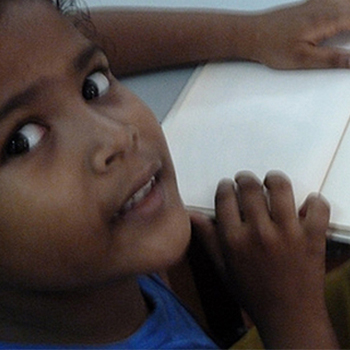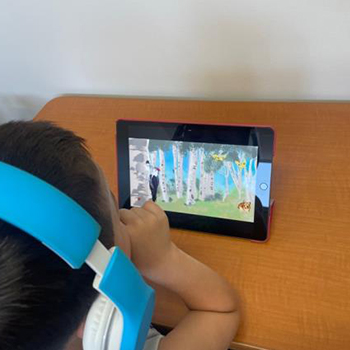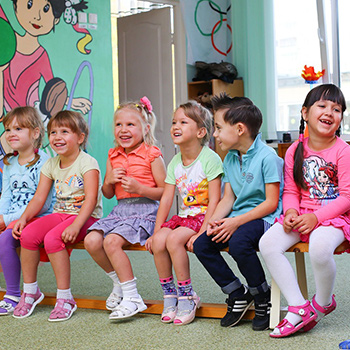Research Projects

Engagement, Attention, & Self-Regulation: Foundational Competencies for Early Literacy
Children’s learning and development is largely dependent on their foundational socio-emotional competencies in attention, engagement, and interest as well as their self-regulation and executive functioning skills. We are interested in identifying the importance of these foundational competencies and supporting their optimal development for reading, literacy, and school success of all children. Our recent projects include developing a measure for children’s engagement in shared reading, characterizing reading resources to support engagement, and evaluating multimedia technology for its impact on engaged learning.

Technology for Literacy: Promises & Challenges
Young children are increasingly exposed to technologies and digital educational materials. The EARLY Lab has characterized multimedia and AI technologies to support engagement, literacy, vocabulary, and STEM concept learning, and investigated the possible positive and negative impact of using multimedia digital storybooks and apps on early education and development. The current projects on multimedia reading have been awarded the Dina Feitelson Research Award by the International Literacy Association and supported by the University of Utah Research Grant and Learning Educational Advances in Research and New Technologies (LEARNT) Award.
Related Work for Technology for Literacy: Promises & Challenges

Literacy Learning in Home, Classroom, & Community Environments
Young children develop cognitive and academic skills in multiple developmental contexts, including formal and informal learning environments. Studying children’s experiences in these environments may suggest various ways to support their learning. We have inquired the importance of home and classroom learning environments, including teacher/caregiver practices, environmental resources, and learning climates. We also examined children’s learning in community spaces and the impact of community programs on children’s literacy in collaboration with SLC library. These projects have been supported by Herbert I. & Elsa B. Michael Foundation, Larry H. & Gail Miller Foundation, American Educational Research Association’s Education Research Service Project, and University of Utah Community-Based Research grant.
Related Work for Literacy Learning in Home, Classroom, & Community Environments

Educational Program & Policy Evaluation
The EARLY lab has examined various educational programs and policy, including evaluating work on Salt Lake City Public Library’s school readiness program, UNICOS technology training and STEM education programs, and Utah’s Science of Reading in collaboration with the Utah Education Policy Center. These projects have been supported by the University of Utah LEARNT grant and NSF.
